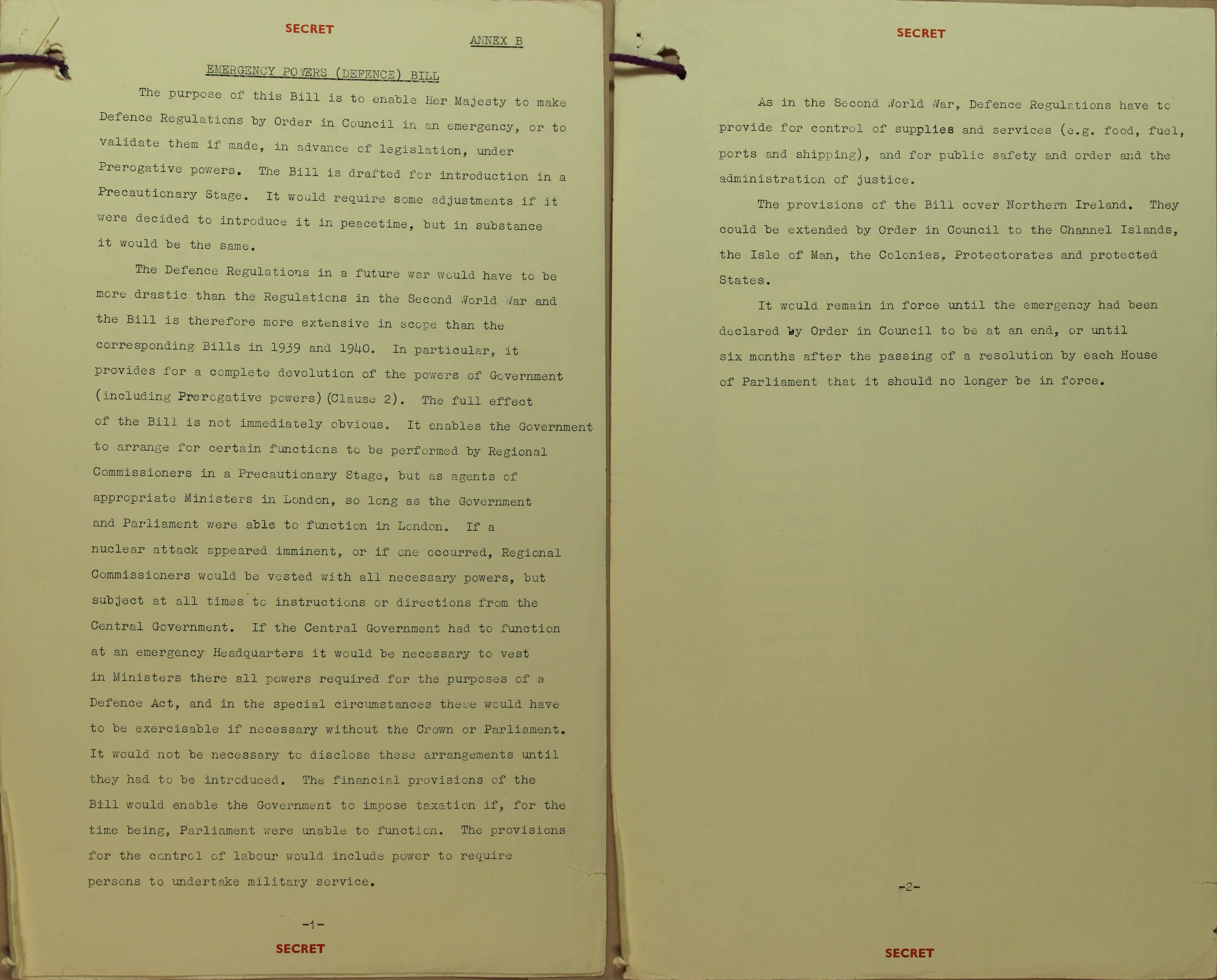
After the Cuban Missile crisis, Britain reviewed its defence planning. The Emergency Powers defence draft Bill, enabled the British Government to enforce emergency measures which did not have to be debated in Parliament, 1963, (Catalogue ref: DEFE 13/892)
Transcript
ANNEX B
EMERGENCY POWERS (DEFENCE) BILL
The purpose of this Bill is to enable Her Majesty to make Defence Regulations by Order in Council in an emergency, or to validate them if made, in advance of legislation, under Prerogative powers. The Bill is drafted for introduction in a Precautionary Stage. It would require some adjustments if it were decided to introduce it in peacetime, but in substance it would be the same.
The Defence regulations in a future war would have to be more drastic than the Regulations in the Second World War and the Bill is therefore more extensive in scope than the corresponding Bills in 1939 and 1940. In particular, it provides for a complete devolution of the powers of Government (including Prerogative powers) (Clause 2). The full effect of the Bill is not immediately obvious. It enables the Government to arrange for certain functions to be performed by Regional Commissioners in a Precautionary Stage, but as agents of appropriate Ministers in London, so long as the Government and Parliament were able to function in London. If a nuclear attack appeared imminent, or if one occurred, Regional Commissioners would be vested with all necessary powers, but subject at all times to instructions or directions from the Central Government. If the Central Government had to function at an emergency Headquarters it would be necessary to vest in Ministers there all powers required for the purposes of a Defence Act, and in the special circumstances these would have to be exercisable if necessary without the Crown or Parliament. It would not be necessary to disclose these arrangements until they had to be introduced. The financial provisions of the Bill would enable the Government to impose taxation if, for the time being, Parliament were unable to function. The provisions for the control of labour would include power to require persons to undertake military service.
As in the Second World War, Defence Regulations have to provide for control of supplies and services (e.g. food, fuel, ports and shipping), and for public safety and order and the administration of justice.
The provisions of the Bill cover Northern Island. They could be extended by Order in Council to the Channel Islands, the Isle of Man, the Colonies, Protectorates and protected states.
It would remain in force until the emergency had been declared by Order in Council to be at an end, or until six months after the passing of a resolution by each House of Parliament that it should no longer be in force.
